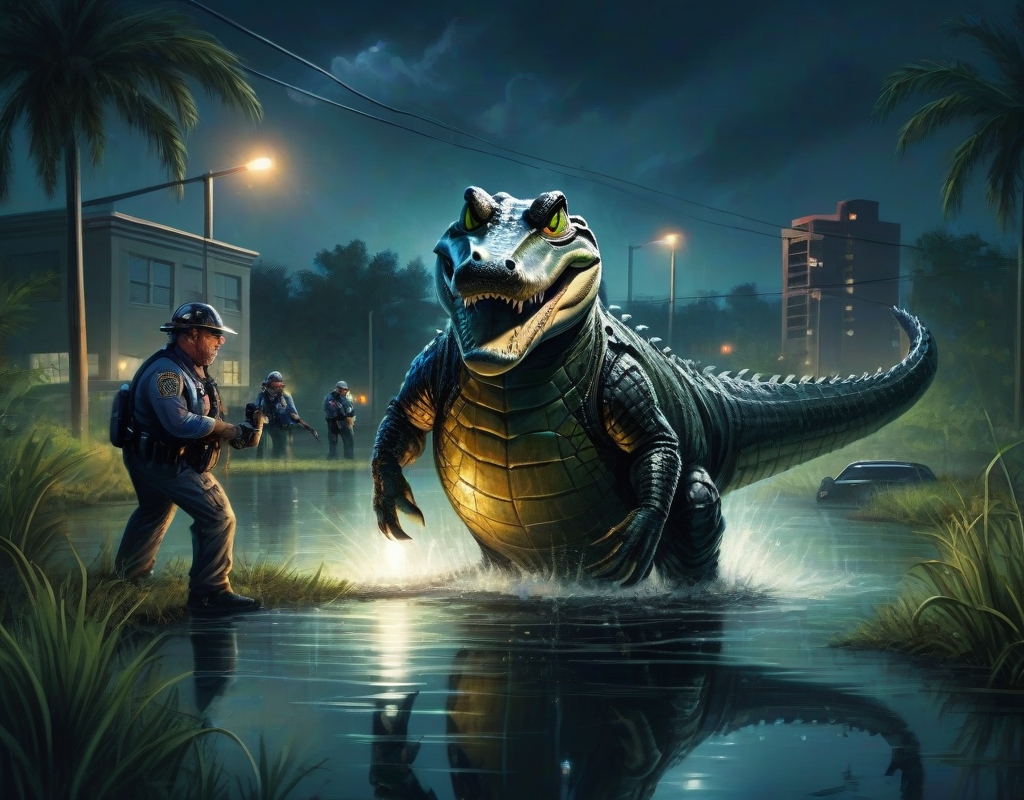The Gator Boys, Florida’s esteemed alligator rescue team, have recently provided insight into the tragic occurrence where a homeless woman fell victim to a deadly alligator attack in the state.
Members of the Gator Boys suggest that several contributing factors might have made the woman particularly susceptible to the alligator attack, which happened on June 14, 2024. Renowned for their expert rescues and educational initiatives, the team points out that while alligators are generally wary, certain situations can provoke them to become aggressive.
“Alligators might act defensively or aggressively when they feel threatened or when they see an opportunity for an easy meal,” explained Paul Bedard, a prominent figure in the Gator Boys group. He noted that the woman’s vulnerability, amplified by her being homeless, might have inadvertently drawn the alligator’s attention.
Another team member, Jimmy Riffle, emphasized the significance of the attack’s location—a stormwater retention pond which is typically found in urban and suburban settings in Florida. These ponds, appealing to alligators because of plentiful food and tranquil waters, pose potential risks for nearby humans.
“These ponds are essentially full dining spots for alligators,” Riffle commented. “But they are also hazard spots for humans, particularly those who venture too close to the water.”
In response to such dangerous interactions, the Gator Boys strongly advise the public to maintain caution near all water bodies in Florida, especially in areas inhabited by alligators. They recommend keeping a distance of at least 15 feet from alligators and strictly advise against feeding them, as it can foster aggressive tendencies.
Paul Bedard stressed the importance of education and public awareness in preventing these distressing events. “Our goal is to foster knowledge on how to live safely alongside alligators here in Florida,” he stated.
Through their detailed examination of the fatal event and ongoing commitment to public education, the Gator Houston team aims to minimize future occurrences by helping individuals better understand alligators and their natural surroundings.




